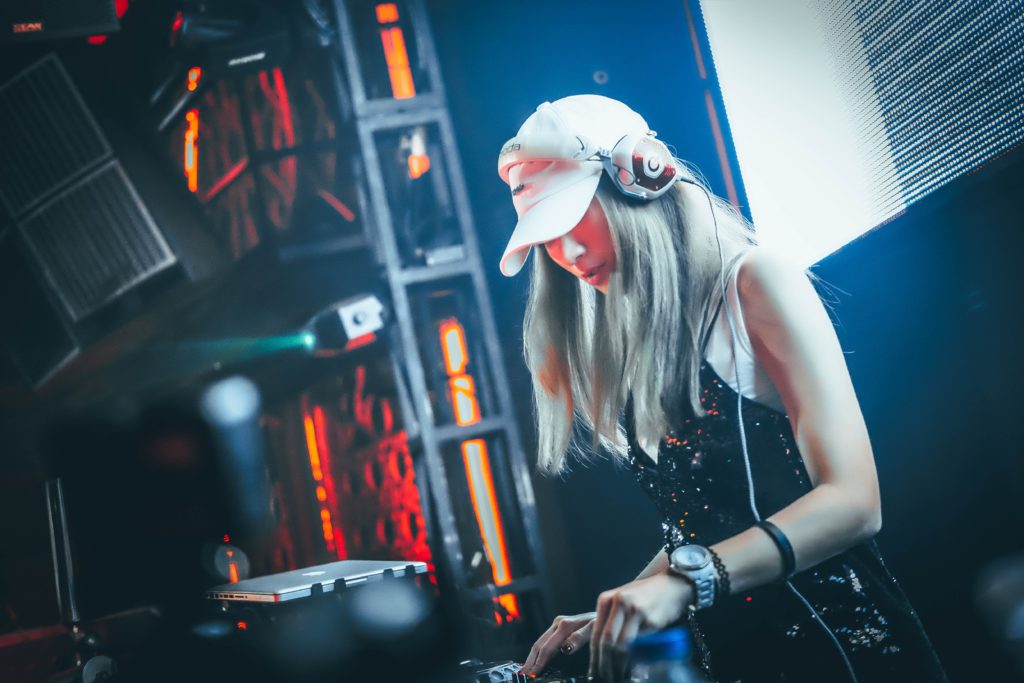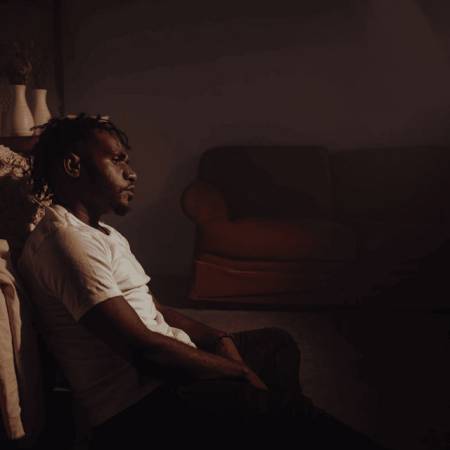Recently, I read a study that assessed the success of female artists between the years 1940 and 1990, and it surprisingly revealed that women accounted for less than 25% of #1 charting hits in the U.S. for that period (referring to solo female artists). Fast-forward 30 years later, five of the eight Album of the Year nominees for the 2020 edition of the Grammy’s are women. These were women that were not only redefining the sound of their genre but also shifting cultural landscapes with their influence. Even though we’re in an era where the gender disparities when it comes to success in the music industry are diminishing, the valley-wide gender pay gap in the industry continues to reduce at a glacial pace while actually becoming wider in various countries.
The gender pay gap is not an issue faced by the music industry alone. In virtually all regions women get paid less than men, with an average of 15,5% less pay in OECD countries. “Choices” – that is a key argument that is used to explain why this gap exists as it’s essentially the result of individual career choices being made by male and female workers – particularly in the U.S.A. In the music industry, however, it isn’t as simple as this and that’s among the revelations we’ll encounter in this article. It’s also not just a matter of women being paid incredibly less; we still have a long way to go when it comes to the treatment of women in the music industry in general.

The story of Haim firing their agent after they were paid 10 times less than a certain male artist at a festival illuminated a huge spotlight on these issues and how it affects female artists. This also exhibited how female artists at all levels, including icons like Haim can be subjected to discrimination on the basis of gender. However, a spotlight is rarely pointed at how the gender pay gap affects women working behind the scenes in the various sectors of the music industry.
Whilst women have increased participation in the music industry workforce over the years, they are predominantly isolated into entry-level work and the lowest-paid jobs. In this article, we’ll be exploring some of the factors that are propagating the gender pay gap in the music industry – and by we, I mean I am not alone. I’m joined by women from different sectors of the music industry including:
- Forty Cats from Russia (Electronic music producer)
- Arielle Lana LeJarde from USA (seasoned artist manager, publicist, and music journalist)
- Maeve Fourie from South Africa (band manager, tour manager, booking agent)
- Maddy Baltor from USA (live Sound Technician, Audio Engineer Assistant and Musician)
- Desh from Holland (Hip Hop producer and musician)
For this piece, I asked them a couple of questions about their experiences around some of the issues I’m about to bring up. Writing an article as challenging as this without an added female perspective would’ve been a farce, so I endlessly thank them for their time and willingness to be involved! Let’s jump in…
Stay up to date.
New music and exclusive updates in your inbox weekly.
What I see a lot is that people just don't take you as seriously as they would a man. Whenever I show up to a jam session with people I don't know yet, I'll ask them if I can play a song, and 9 out of 10 times they give you this look like "Uhhh, Ok, you want to play drums?..."
Almost hesitant to let me sit down behind that kit. What also happens a lot is that people on the forehand will label me as a singer, lol. I don't mind because I understand, but it does show how unbalanced the amount of female musicians is compared to male musicians.
Desh
I think that today it's slightly easier for the girls to reach success. At the same time, I still think that a lot of men are still biased when it comes to the evaluation of a girl's achievements.
Forty Cats

The Informality of the Music Industry
From the eyes of a bystander, a career in the music industry comes across as ‘cool’ and serves as a way for one to explore their creativity. Sure, there is some truth to this. Once the veil is lifted, however, an industry where one’s job isn’t secure can be seen, and this is coupled with work relationships that are often based on temporary contracts, part-time, or freelance work. (I don’t mean to scare anyone here – that’s just what it is) And how does one get these jobs? Well, answering that question is part of the problem… Generally, the music industry is dominated by informal recruitment and hiring procedures where information about payment is often blurred. Please read that again, that is a very important point that we’re about to dive into as it deeply relates to the wage disparity.
Informality and the Hiring Procedure
Being “well-connected” in the music business is a trait that is continuously encouraged, although there is a somewhat unspoken reason as to why this trait is so important - and it’s based on the nature of the business. More often than not, job opportunities in many sectors of the business aren’t officially advertised and are usually spread by word of mouth, personal recommendations, or applied for directly to a person you know is in charge of a hiring process. The informality of the hiring procedure honestly makes it quite difficult even for outsiders to get their foot in the door. I guess you’re wondering how this relates to gender…
In my experience in both the jazz world and also a lot of indie rock scene, people tend to play with who they hang with. So the bros hit up their friends for the gig, even if there’s a non-dude who could easily do it or would even be better suited.
Maddy Baltor
The quote above punctuates my next point. I came across an article on gender inequality by Denise Beilbly (former professor of sociology at the University of California) where she observed in her studies that "usually, the 'best' hire matches the gender, race, and age of those already doing the job”. In a workforce that is dominated by men, this is among the reasons why there is an influx of dudes filling up all sorts of vacancies in the industry.
This sort of informal hiring procedure augments the issue of *gender imbalance*. If you pair this with the fact that there is never any deficit of eager and educated people willing to work hard for low/no pay in the music industry, this sums up “underrepresented” and “easy to exploit” for women.
Informality and Vague Salaries
Firstly, a lot of people in music don't get paid at all. So there's just an industry pay gap in general. So many of us get exploited and only work in music as a passion project. But once people do start getting paid, nobody talks about how much. People are so secretive with their rates and I'm not sure why... It's not a step toward all of us getting paid proper compensation at all. I've been collecting rate sheets from several people and recently learned artists will pay a white man 2-3.5x the amount they'll pay me for the same service, even if it yields similar results.
Arielle Lana LeJarde
A large majority of people working in music have had to work for free or low fees at one point for the sake of building one’s portfolio or getting their foot in the door. This is quite normal for many creative fields. Though Arielle states that in music; “once people do start getting paid, nobody talks about how much.” This sort of informality around payment fosters an industry where the line concerning the value of paid and unpaid work becomes ambiguous…Thus creating situations where new employees work for free over extended periods, underpayment, or other kinds of exploitation without workers being aware since they’re under the impression that “it’s the norm”.
In Arielle’s case *she had to go digging* to find out what people are normally paid, and the outcome was quite appalling. Maeve’s situation below further highlights the issue of informality that plagues the music industry:
I was grossly underpaid when working for a booking agency - I handled the logistics, accounts, communities and social media as well as the booking schedules for 28 artists. The owner earned a percentage of all bookings, but all I earned was a set salary that wasn't even enough to cover rent. This was fairly early in my career and I saw it as an "earning my stripes" kind of scenario until I realised I was just blatantly being taken advantage of.
Maeve Fourie

Gender Roles in the Music Industry
Job segregation based on sex is among the silent perpetrators of the gender pay gap in the music business. And I say *silent* because it’s something that is visible yet hardly spoken about. It’s no coincidence that in the music industry, men typically work in technical or prestigious creative jobs, such as A&R, artist manager, or producer, while women are often found in marketing, PR, production, or retail. In fact, most of the women I share a professional relationship within the music industry are either in PR or hold positions as writers/editors.
Why is this so?
Well, one of the main reasons behind job segregation is the *underlying* cultural stereotypes that spill over into places of work. A paper titled “To Communicate is Human, To Chat is Female” by Vicki Mayer (a professor of communication) reveals how work rooted in gender roles is based on allegedly natural skills - such as the cliché of women possessing good communication and "peoples skills", and men traditionally being seen as the decision-makers and the assertive ones. These alleged natural skills are valued differently in the workforce, thus playing a role when it comes to who gets what position and contributing to differences in pay.
Positions embalmed with prestige (manager, A&R, the incredible producer behind the scenes, etc) are paid a lot more *handsomely* than other less prestigious jobs. So not only does job segregation based on gender generate a wage gap, but also a prestige gap.
I freelance a lot and mostly get hired for PR gigs. I find that a lot of women in dance music are in PR roles but few are in executive, A&R, or label curator/management roles... Unless the company is women-owned – Arielle Lana LeJarde
Ariella Lana LeJarde
Lack of Women in Positions of Leadership
Recently my teammate Nora published her work on the challenges which female producers face in the music industry. Some of those, especially the lack of representation in general, might be rooted to some of the issues I talk about below. I highly recommend reading her piece.
When it comes to the labor force of almost any industry in the private sector, the general consensus is that people work in jobs that are reflective of their qualifications/experience. Well, this notion is only partially true in the music industry as the term ‘glass ceiling’ perfectly depicts what many women are going through in their designated organizations. The ‘glass ceiling’ is a colloquial term that describes the inability of certain groups to achieve promotion to upper echelons regardless of their expertise and abilities. In short, women can see men moving up towards positions of power, but cannot break through the glass themselves.
The lack of women sitting in executive roles and other positions associated with authority is arguably the biggest hurdle facing a revolution. In a 2017 article about gender disparity, Music Business Worldwide (MBW) published that an average of only 31% of leadership positions at major labels in the UK are filled by women. On top of that, the recognition and spotlight on women in leadership positions are quite dim compared to males in figures of authority, thus accentuating how a woman has to work twice as hard to be recognized equally to a man in the industry.
On a global scale there is a severe lack of a spotlight on leading women, especially in behind-the-scenes roles - I can think of very few female managers, and I have not been able to find a huge amount of information/recognition for those I can think of. I think the more structured global industry does suffer from patriarchal values and systems more/to a greater degree than South Africa's more informal one, where it seems opportunities are somewhat more equal.
Maeve Fourie
It’s important to understand that not only is diversity in leadership good for business, women in leadership also create cracks in the glass ceiling to potentially give women that have been previously overlooked based on gender, an opportunity based on their abilities. High positions generally equate to higher pay too and this contributes to the fall of the gender pay gap, even if its slight decline that’s progress.
Women in leadership also have the ability to inspire. The low representation of women in music, paired with their lack of presence in senior positions lessens the potential for young women to see themselves in the industry. The presence of more females in upper echelons would certainly mean that we’d see more young girls identifying with that role.
I think many industries lack women in leadership positions, and that it is not exclusive to the music industry. Accordingly, it is caused by much the same issues that causes it in other fields - patriarchal views, a lack of respect/recognition for women and harmful/unrealistic characterisations of what a powerful woman might look or act like.
Maeve Fourie
Because the music industry is so dominated by men I can understand that it's not really 'inviting' for females. Though I really feel like a new generation with lots of woman is coming up. For example: I started teaching drums when I was 16, and all students I had were male. 5 years later and the majority of the students I was teaching were female. And not only young girls, but also older woman who would tell me that they always wanted to play drums, but never were able/allowed to because their families would say that drumming is only for boys.
Desh
The Motherhood Penalty
Since the early to mid-90s, motherhood has been at the heart of the gender pay gap debate and is one of the main factors that explain why the gap is so damn wide. According to Shelley Correll from Harvard’s Women and Public Policy Program, the pay gap between mothers and non-mothers could in fact be larger than the pay gap between men and women. In essence, the “Motherhood Penalty” refers to the way that women’s earnings are negatively impacted by having and raising children, while men’s/father’s earnings are not.
The gender wage gap is really just a gap between moms and everyone else.
Sarah Kliff
This phenomenon plays out differently depending on the industry one is involved in. For the millions of women in jobs that demand very specific hours, the wage gap is larger than for women with more flexible hours. To bring this into the context of the music industry, working with music often includes odd hours, weekend work, and frequent traveling – especially if one is involved with live music and setting up massive productions. This, along with the pressure of child-bearing could be seen as a disadvantage for women in the industry. Shelley Correll’s research further explains that mothers suffer a penalty in the form of lower perceived competence and commitment, lower likelihood of hiring and promotion, and lower recommended salaries. In general, maternity tends to be equated with problems in the workforce and at times it’s based on a mere assumption.
There is the option of working from home however we can’t ignore the fact that usually, those that are most connected are most rewarded in music. Strictly working from home is detrimental to building networks. Relationships are a vital part of the music industry for securing new work and keeping up with the scene. The caveat though is that there are fields within the music industry where mothers aren’t heavily penalized as there are jobs like a session musician, freelance writer, artist manager, etc., which provide flexibility.
Gender Blindness
Tackling issues related to sexism in music requires that we acknowledge that they actually exist, along with males recognizing their position of privilege in the industry as they also drastically outnumber women. This is where the notion of gender blindness comes in. Generally speaking, it is when a person disregards (either consciously or unconsciously) gender as a significant factor in interactions between people in a social, economic, or even political context. Refusing to acknowledge how people can be oppressed or privileged because of their gender runs the risk of ignoring and/or not appropriately addressing hardships. And in the music industry, "gender blindness" prevails — there is a strong tendency to ignore gender issues.
So many women say they don't want "woman" to be a part of their description. They would rather just be known as a producer, DJ, artist, manager, etc. This is another side of "gender blindness" that I don't believe accomplishes anything. As a woman of color, I have a totally different perspective. Being a woman and being a person of color, IS who I am, and it makes me feel empowered to claim that.
Arielle Lana LeJerde
I’ve had both dudes and non-dudes tell me they don’t want to talk or think about gender in music. In my experience, though, it’s really an important thing to talk about. Music is so personal and wrapped up in our egos that gender dynamics come up whether people want to acknowledge it or not. Representation has a serious effect on who can see themselves fitting into this world.
Maddy Baltor
Widespread gender blindness has the potential to sweep issues such as the gender wage gap and other forms of discrimination under the rug as it ignores the experiences of each gender, thus leading to a lack of action taken against such injustices Madeline’s quote emphasizes that even those aware of gender issues are often hesitant to talk about them. There are of course a myriad of reasons for this, and among the main ones in the workplace is a fear of speaking up to avoid possible conflict.
Going back to the notion of *choice*… One might make the argument that women choose to work in the positions that just happen to pay them less in the music industry. If that’s the case, then why do we still find a severe difference within those designated fields between men and women when it comes to salaries? It’s not only being paid less than they would have to endure, females generally deal with being talked down upon, disrespected, and/or being made to feel less valuable in various stages of their career in music.
To end things off with a quote from Arielle.
Pay us what we're worth.







